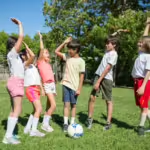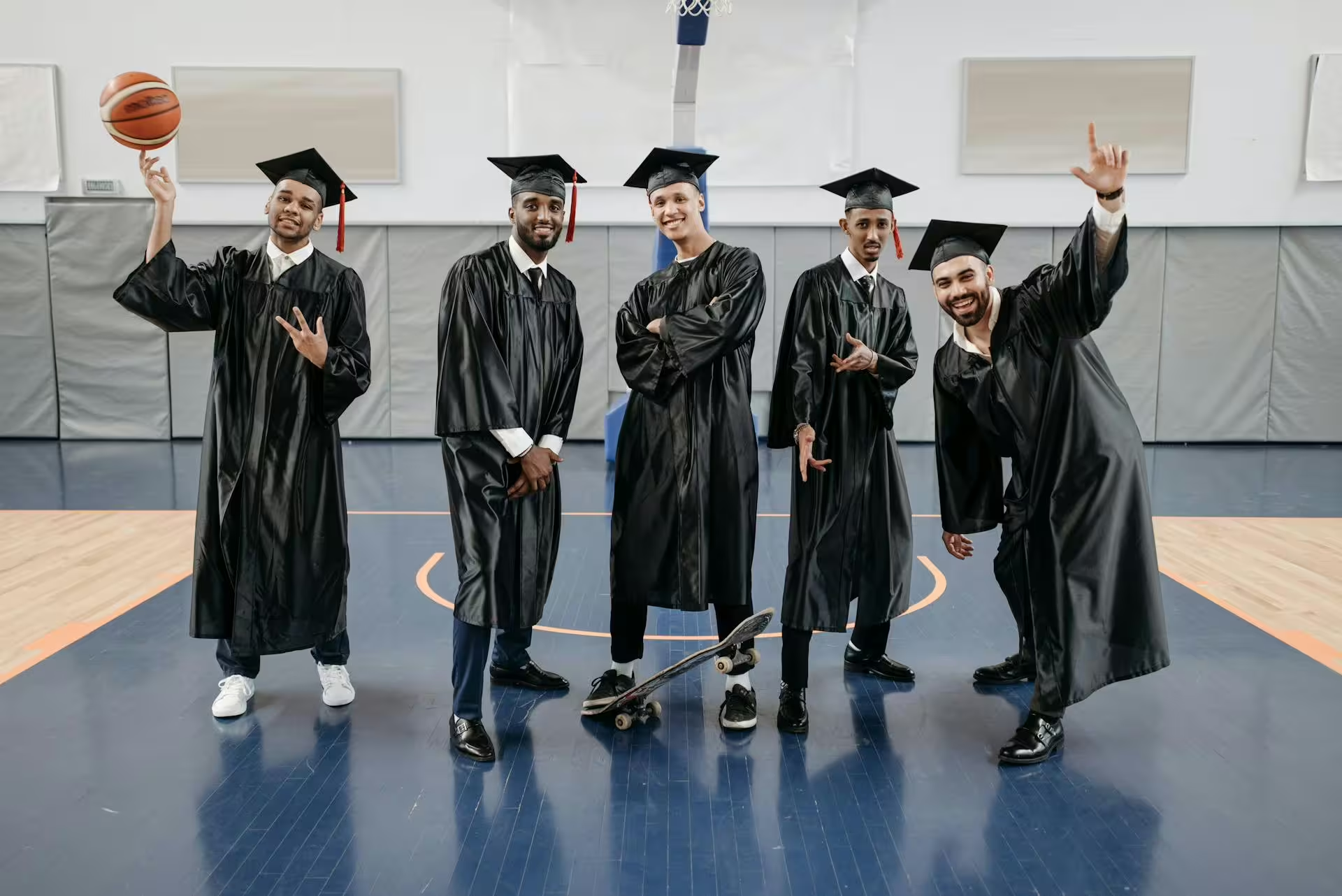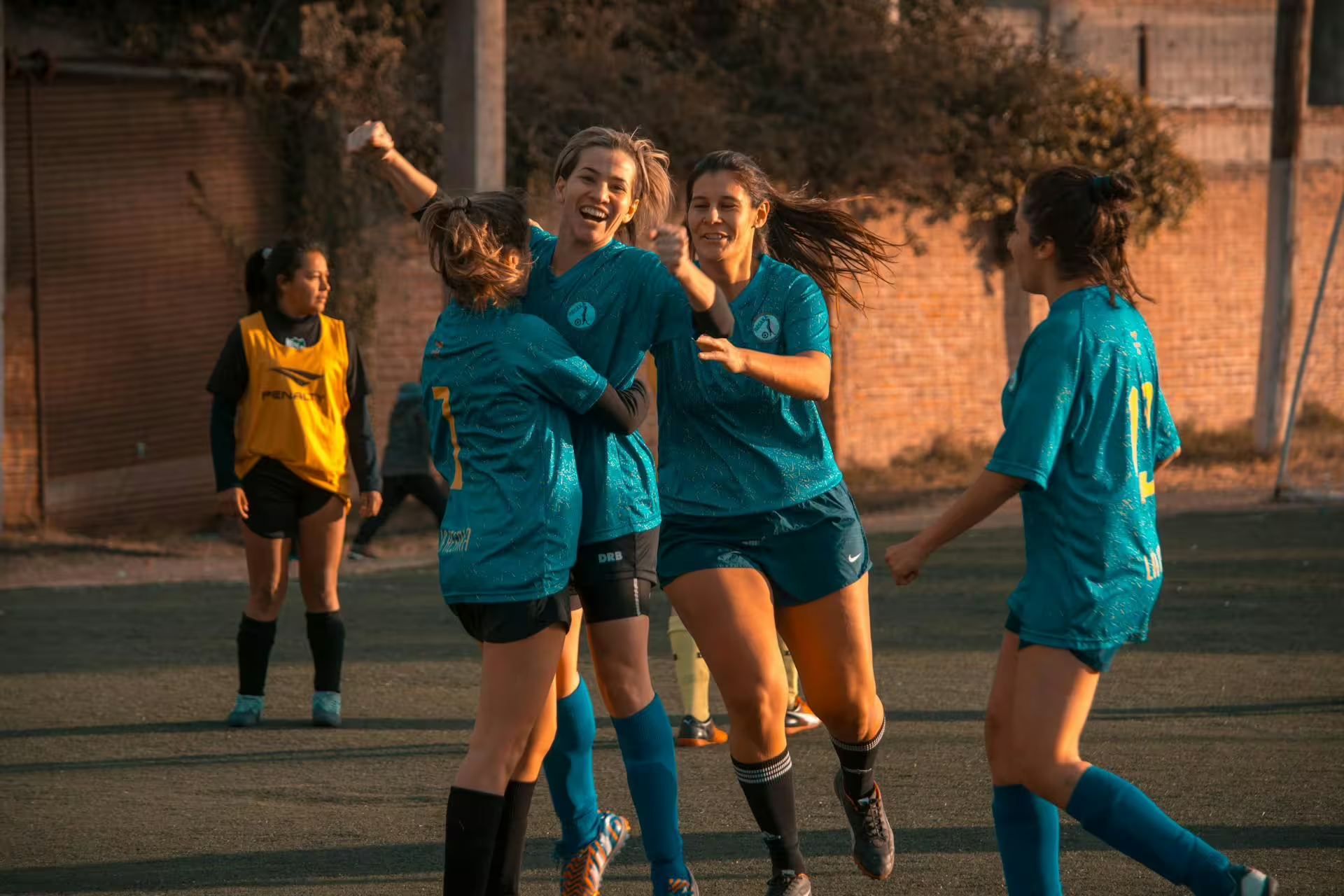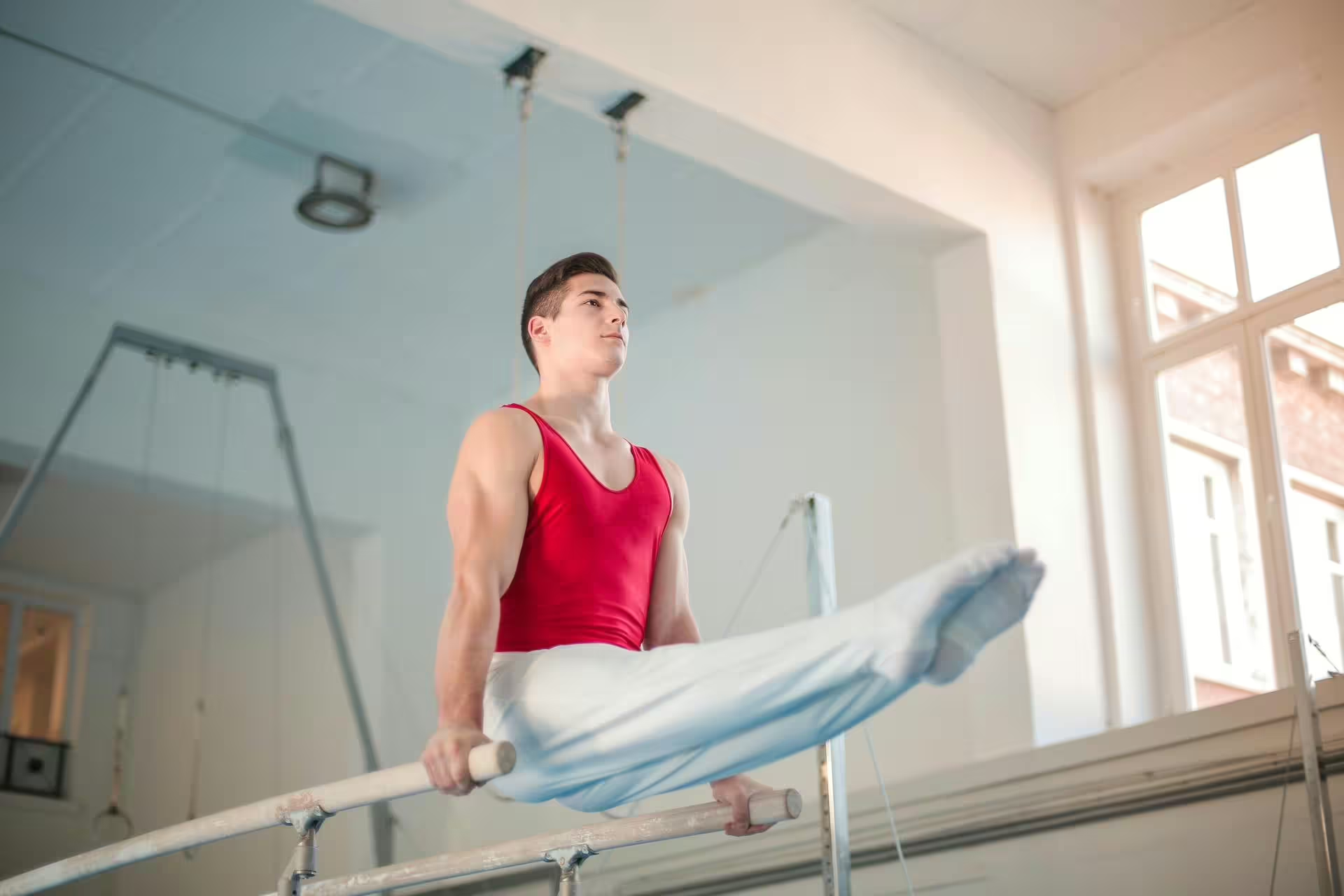Every few years, the world gathers together to do the one thing that seems to bypass borders and biases; the Olympic Games. Since the early days of human civilization, the Olympic Games has been a powerful means of bringing people from different countries, races, and walks of life together.
In the modern age, news and television coverage of the event has drawn people in, allowing even those who cannot be present or participating, to feel the excitement firsthand. Through the years, the Olympic Games has remained a source of powerful stories of perseverance, triumph, and national pride. And though the advent of television and internet coverage has brought the Olympic Games a renewed sense of popularity and accessibility, they have been a powerful source of inspiration for young athletes for untold generations.
For children, the Olympics are more than just a sporting spectacle. They are a window into a world where dreams truly so come true. The games are a place where hard work pays off and where athletes from all over the planet can come together in the spirit of friendly competition. Whether by sparking an interest in sports or encouraging values like discipline and teamwork, the impact of the Olympics goes far beyond the two weeks of competition.
In this article, we will explore how the history of the Olympic Games as well as how Olympic movement has shaped the ambitions and lives of young athletes. At the same time, we will touch on what it means for parents looking to nurture that same spirit in their own kids. Remember, parents are afforded a great opportunity to talk about goal-setting, sportsmanship, and persistence. It’s a chance for families to celebrate effort over outcome and to encourage children to dream big—not just in sports, but in life.
What The Olympics Inspire
Children often watch sports competitions with wide eyes and big dreams, imagining themselves crossing the finish line, landing a perfect routine, or winning the trophy. The Olympic Games amps this up to the next level, as they offer real, everyday heroes for them to aspire to be. The diverse group of hardworking Olympian athletes show kids what it means to chase a goal with everything they’ve got. Their moments of triumph can often ignite a spark in children, leading them to take their first determined steps onto a field, court, mat, or track.
The lessons imparted by the Olympic spirit goes beyond medals and records. The games teach children about global unity, respect for others, and the joy of giving their best. It doesn’t mean that the athlete they are watching has to win every time, either. Ultimately, whether a child is watching a swimmer break a world record or a gymnast who falls and gets back up, they still get a firsthand look at courage, humility, and resilience in action.
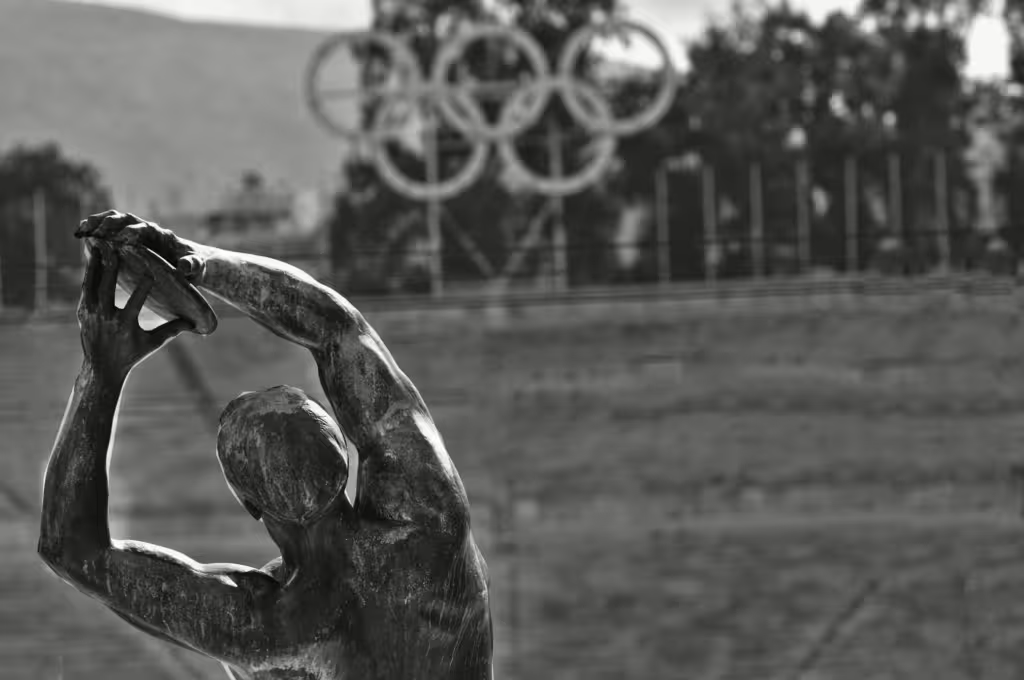
The Power of Role Models
Role models have always been an important part of televised and organized sports; at least where young athletes are concerned. In fact, one of the most immediate and lasting impacts of the Olympic Games is the role modeling effect it creates. Children who watch Simone Biles defy gravity in gymnastics competitions, or see swimmers like Michael Phelps dominate the pool, often come away thinking, “I want to do that!”
In many ways, olympians represent the pinnacle of athletic achievement for human beings in modern civilization. These accomplished athletes show kids what’s possible with dedication, hard work, and a belief in their own abilities. Moreover, these role models often come from diverse backgrounds, proving to kids that greatness isn’t limited by geography, race, or even economic status. Fortunately, parents can build on this inspiration by encouraging their children to follow the journeys of these Olympian paragons and learn from their stories.
Fostering Dreams and Goal-Setting
Despite what some young children may think, Olympic athletes don’t just appear out of nowhere. Like everyone else, like the children themselves, these athletes begin life as kids with a dream. Watching the Olympics is a great way to motivate kids to set their own athletic goals, whether it’s to join a swim team, practice their flips in gymnastics class, or run faster on the track.
Thus, the Olympics represents a wonderful opportunity for parents to sit down with their children and help them define their own sports goals. It could be as simple as learning to dribble a basketball or as ambitious as qualifying for a junior national team. The key, in this case, is to have the child connect that inspiration and drive they feel with actionable steps that you, as a parent, can help to regulate.
Promoting Diversity and Inclusion in Sports
One of the most beautiful aspects of the Olympic Games is their global nature. We live in a globalized society and as a result, children who view the Olympics today are exposed to athletes from nearly every country on earth. Each one of them speaks different languages and wears different uniforms, yet each and every one is united by a love for sports and competition.
In many ways, this global celebration helps young viewers appreciate diversity in a much more actionable way. They can see, firsthand that sports really are for everyone. Moreover, when children see athletes of different races, genders, abilities, and body types competing at the highest levels, it breaks down stereotypes and opens their minds to new possibilities; even for themselves.
One good example involves South African runner Caster Semenya, a person who challenged norms about gender identity. There are also the Paralympians, people with disabilities who demonstrated world-class athleticism. In both cases, millions of children saw firsthand that greatness has many faces and even the most formidable challenges can be overcome with the right mindset. Parents can use these stories to talk about inclusion and acceptance with their children.

Olympic Values That Stick With Kids
Medals are great and so are worldwide acclaim and popularity, but all of these benefits pale in comparison to the core values like excellence, friendship, and respect that much of the Olympics is grounded in. These principles are woven into every event and into the story of every athlete that gets to compete.
As a result, young viewers often come away with a deeper understanding of what it means to compete with honor and to respect one’s opponents and teammates alike. Through the fine example of Olympic athletes, kids learn that trying your best, supporting teammates, and respecting even the most dire opponents are all just as important as taking home the gold.
Moreover, these values translate well into school, family life, and friendships. As parents, we should take the opportunity to reinforce these ideals in our child’s daily life, not only by pointing them out during Olympic coverage, but by applying them to daily experiences.
Unforgettable Moments That Shape a Generation
Though we are all of us older now, many parents might still remember the first time we saw our team or favorite athlete do well at the Olympics. Over the years, each Olympic Games has delivered its own contingent of iconic moments; victories and defeats that live on in the hearts of fans of every age. Perhaps you remember gymnast Kerri Strug landing a vault on an injured ankle in 1996, or the Jamaican bobsled team making their debut in 1988 and finding fame in a subsequent Disney motion picture! These moments teach resilience, courage, and heart to children and linger in the zeitgeist for many years afterwards.
More recent moments—like the unity shown during the Tokyo 2020 Games held in the midst of a global pandemic—send a message about perseverance and hope to a beleaguered, terrified world. When children witness these stories, they internalize powerful life lessons and can see hope in full bloom.
As you watch, ask your child which moments stick out to them. Take note of those moments and talk with them about what they mean to them. Take the time to reflect on the important values those moments represent and how they can be applied to your child’s own sports journey.
Olympics as a Catalyst for Trying New Sports
Parents might not see the Olympics as a “gateway drug” for sports, but it may well be! In fact, many kids discover their love for a particular sport while watching it for the first time on the Olympics. The variety of events—from fencing and trampoline to skateboarding and rock climbing—means that the games offer something for everyone.
Many of the most unique sports featured in the Olympics aren’t offered in standard school PE classes, making the Olympics a more exciting introduction to a host of new athletic passions. Parents can nurture this curiosity by signing kids up for local classes, camps, or clinics. Remember, outside of school programs, there are many sports options for children at a local and national level; if you know where to look. We suggest starting with the internet.
That said, even casual play in the backyard or driveway can help children explore what they like or what they’d like to try. The important thing for parents is to follow their kid’s enthusiasm and provide them with a safe space to try new things.
The Influence of Young Olympians
Did you know that some Olympians make it to the world stage as teenagers? It’s true, for those with teenage children, the Olympics could represent a place where they can see their peers competing on a world stage! Seeing someone close to their own age achieve so much can be incredibly motivating for young athletes.
Athletes like snowboarder Chloe Kim, who won Olympic gold at age 17, show teens that age need not be barrier to excellence. In addition, many of these younger Olympic athletes have active social media accounts where they share training tips, behind-the-scenes moments, and personal stories. This allows kids to connect with their heroes in a more relatable and consistent way.
The Role of Families in Supporting Olympic Dreams
Bear in mind that behind every Olympian is a support system of some kind. It could be tired parents driving them to early practices, siblings cheering them on from the sidelines, or coaches offering encouragement and expertise to get them where they need to be.
Parental involvement can make all the difference in how your child views their athletic pursuits and while that doesn’t mean pushing them to become an Olympian, it does mean showing up, listening, and supporting their goals, whatever they may be.
Passing the Torch: How Inspiration Becomes Action
Something to remember; inspired kids often want to act right away—to run, to jump, to compete. Don’t sleep on this enthusiasm! This could be the perfect moment to channel their energy and seize upon their desire to do something sports-related that really inspires them!
Parents can enroll their kids in a local league or seek out an organization that lets them practice real Olympics sports. Heck, even setting up an obstacle course in the backyard is a good way to get younger kids into the game, so to speak. Parents can also help their kids set their own fitness challenges or better yet, do something active with them. When kids see their parents value physical activity, it reinforces the importance of movement and health. Remember, olympic inspiration is most powerful when it leads to action. Make sure the spark doesn’t fade and that you keep the torch burning!

Cultured Athlete Says…
As you can see, the Olympics are more than gold medals and flag ceremonies. This worldwide event is global celebration of humankind’s potential, dedication, and the power of the human spirit. For children, the Games light a fire of possibility and illustrate what it means to aim high, fall short, and keep going.
Parents can nurture this spark of interest and help their children to translate Olympic inspiration into their own personal journey. Whether your kid dreams of a podium finish or simply wants to improve their game, try something new, or support their country, the lessons of the Olympics can guide them every step of the way.
Discover more from CulturedAthlete
Subscribe to get the latest posts sent to your email.



